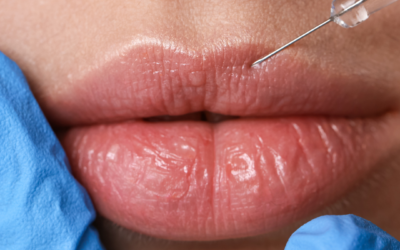
In honor of National Healthy Skin Month, we’re devoting November to raising awareness about the skin, your body’s largest organ, and how to keep it vibrant and healthy. This week, we will discuss how you can avoid dry skin this winter.
As the season shifts towards winter, the temperature starts to drop and the humidity begins to fall. The cool, dry air accelerates water loss from the skin, which can leave skin looking rough, dry, and dull. Here are some tips to counter skin dehydration and keep your skin looking radiant and feeling fresh.
Cleanse and Moisturize
To prepare your skin for winter, you will need to modify your daily skin care regimen. Select a mild, hydrating cleanser for the face and a gentle, hydrating body wash. According to Christian Millett, a board-certified dermatologist with Forefront Dermatology in Tyson’s Corner, Virginia, “It is important to avoid long, hot showers, which can lead to even further dehydration of the skin. Instead, use lukewarm water and limit showers to 10 minutes and only once a day.” After washing, pat your skin dry and then apply a moisturizer, making sure to reapply throughout the day. Use a thick, cream-based moisturizer for the body in order to lock in moisture and keep the skin hydrated. For the face, use a facial moisturizer that will protect and hydrate without clogging the pores. Using a humidifier to increase the moisture in the air can also help to reduce water loss from the skin.
Continue to Use Sunscreen
Even though the solar radiation is less intense in the winter, it is still important to protect your skin from the damaging UV rays of the sun. This is especially true during the peak daylight hours from 10 AM to 4 PM. Daily use of a sunscreen with an SPF of at least 30 can help prevent sun damage and keep the skin looking youthful and vibrant. Just remember to reapply every couple of hours if you’re going to be outside.
Hands and Lips
Hands and lips in particular can become very dry and cracked during the winter, as the lack of oil glands in these areas can make them difficult to keep moisturized. Avoid frequent hand washing and instead use an alcohol-free hand sanitizer. When you do wash, moisturize immediately after with a thick hand cream to minimize cracking and keep your skin soft. When going outside, wear gloves with a cotton liner. Cotton gloves can also be worn overnight after moisturizing to help increase absorption of your moisturizer. For the lips, use a thick ointment or protective balm with SPF, and reapply it throughout the day.
Exfoliate
Dehydrated skin can show signs of dryness, including flaking, scaling, and cracking. Dead skin cells can prevent moisturizer from absorbing completely, so use a mild exfoliator once or twice a week to prevent buildup.
Avoid using harsh peels, toners, and astringents which can remove oil from the skin. Instead of foaming scrubs, use hydrating scrubs to gently remove old skin cells without stripping the skin of its moisture.
Your Local Skin Experts at Forefront Dermatology are here to Help
Establishing a relationship with a board-certified dermatologist is an important step you should take to keep your skin healthy. If you or a family member have a skin concern or would like to schedule a consult, find the Forefront dermatologist nearest you to schedule an appointment or to learn more.





